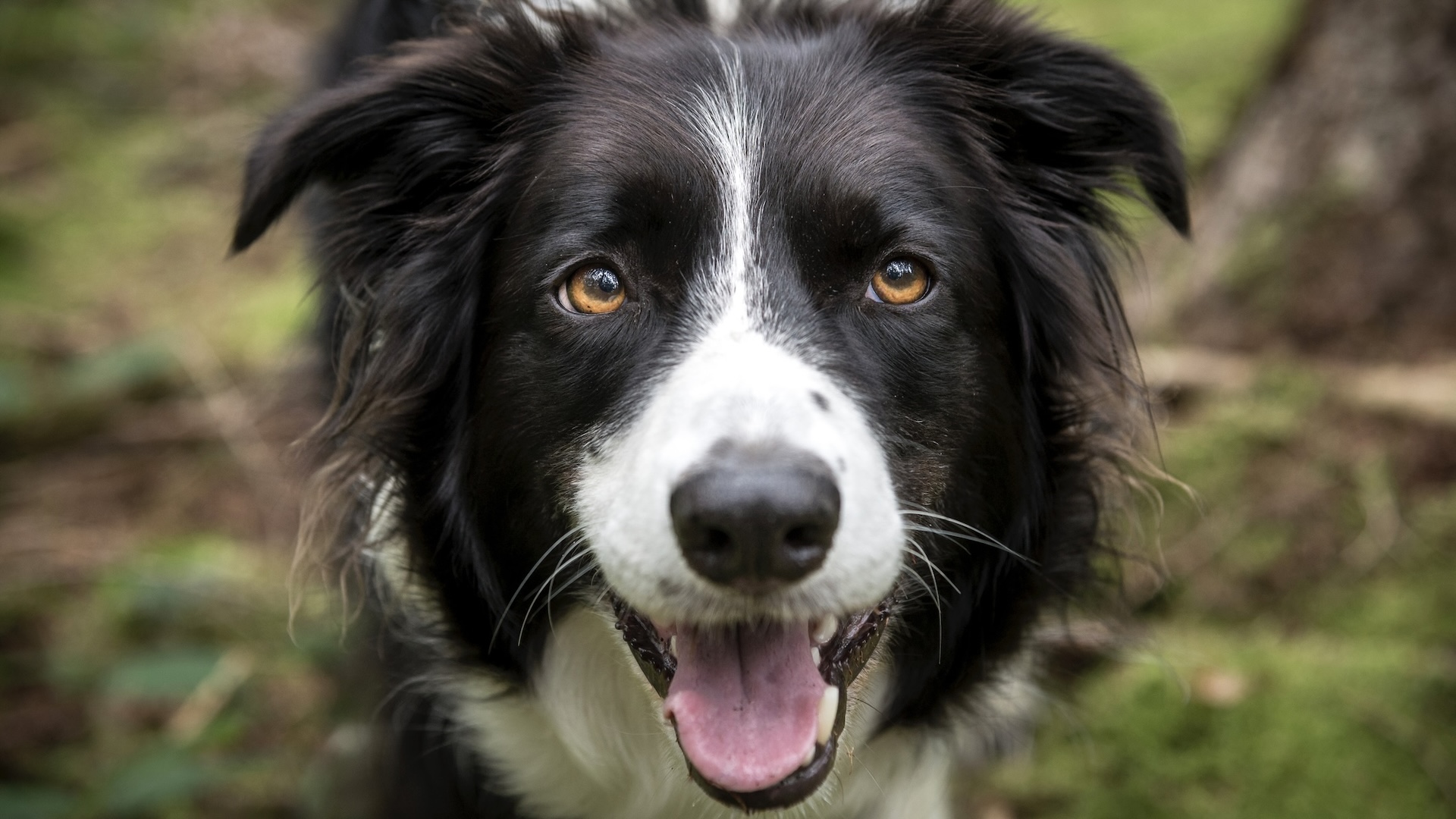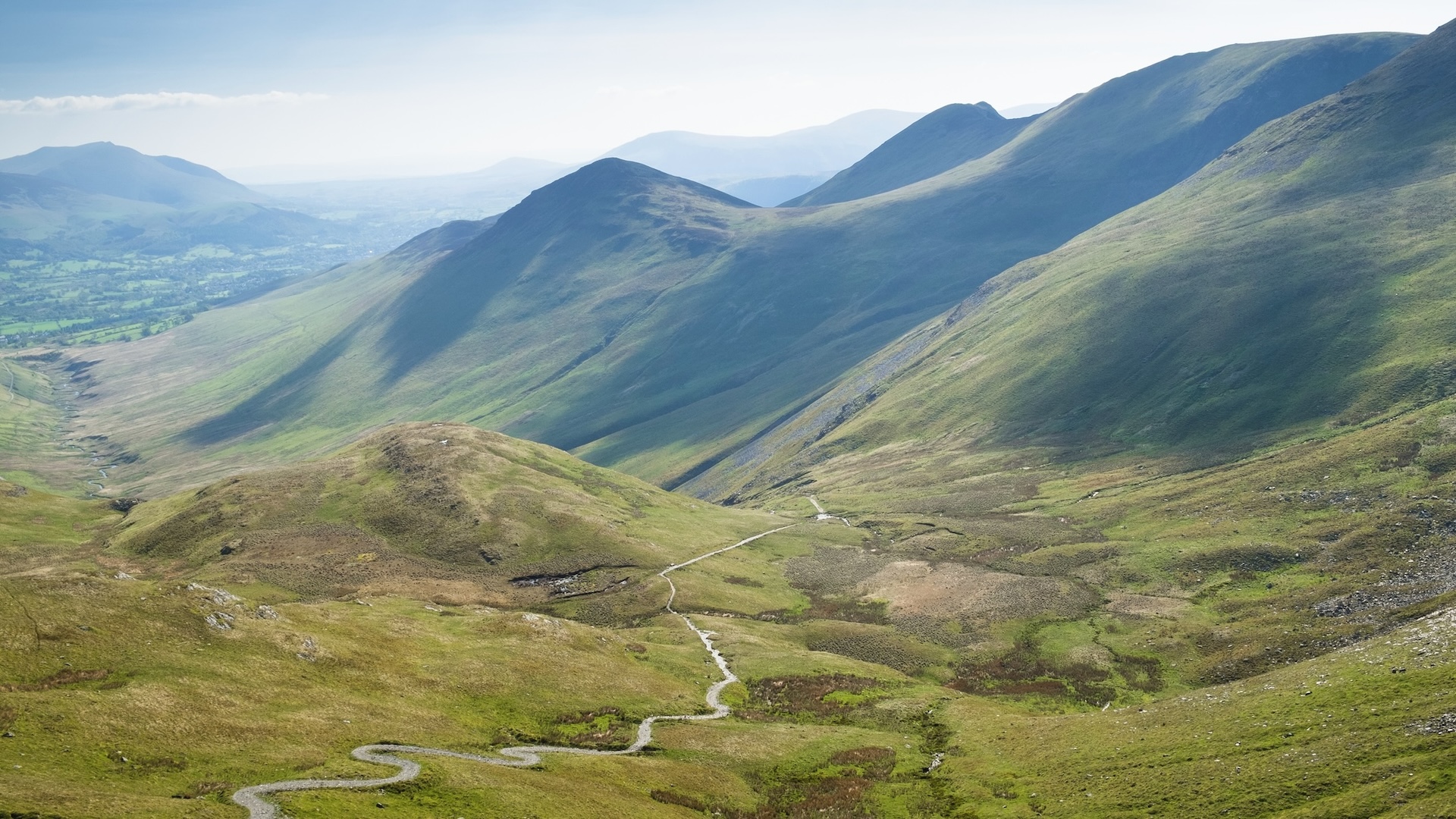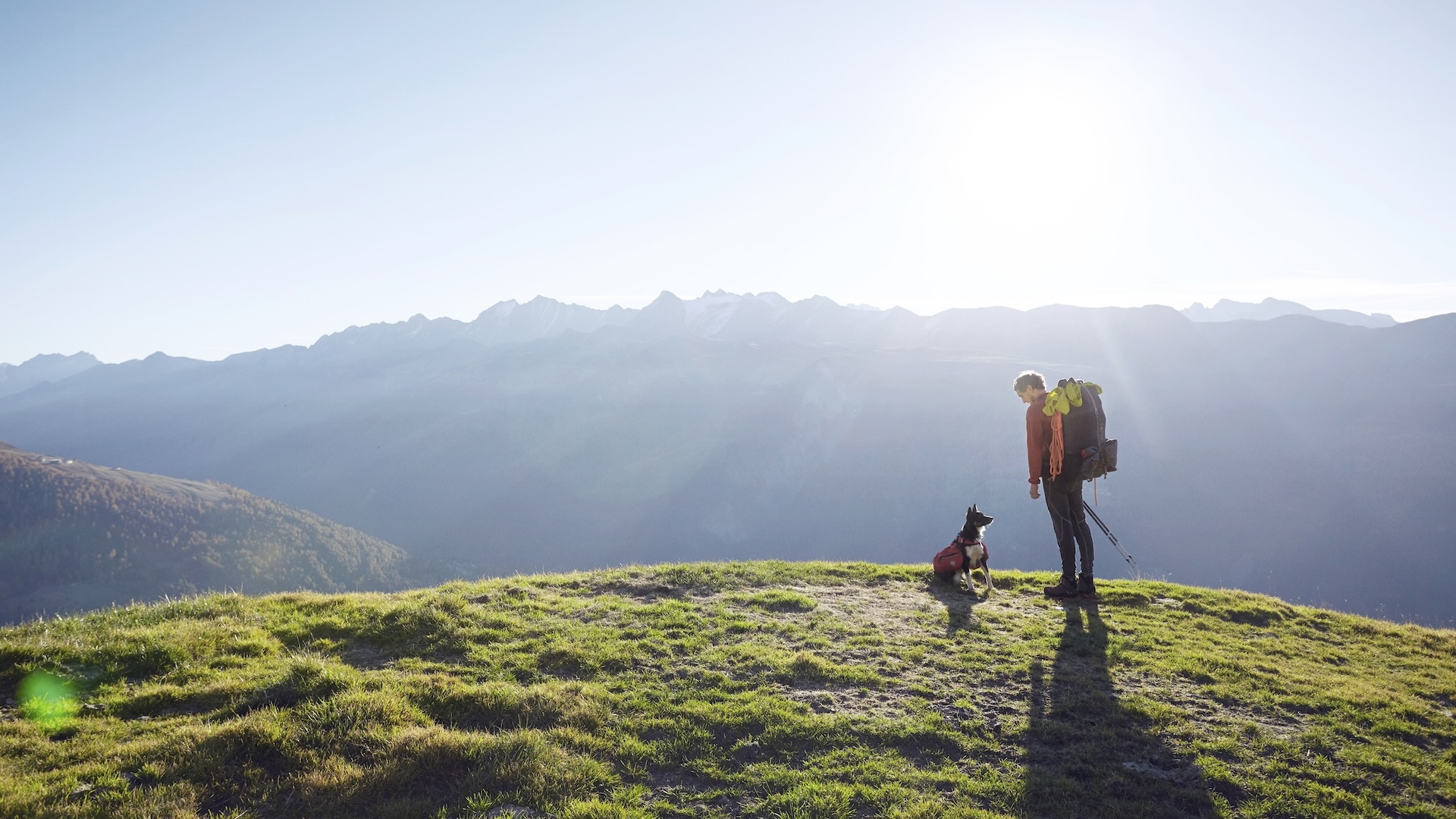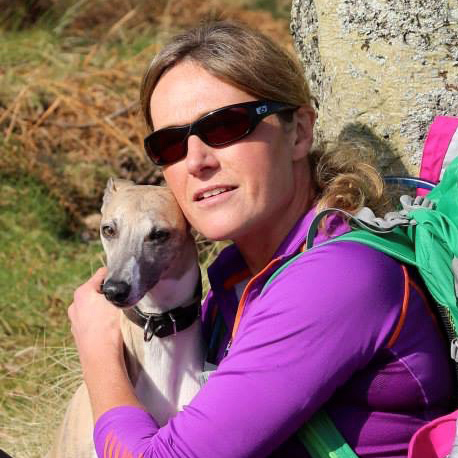Heeding "urgent call of dinner," mountain rescue team clears blocked road after saving dog from rocky ledge
Mountain team carry border collie to safety before hauling tree from road

Mountain rescue teams recently went to the aid of a dog that had found itself stuck on a crag during a hike – and then helped to re-open a road after a fallen tree had blocked it.
The double incident took place in a popular hiking area in the UK and started when a man went for a hike on a hill route of some 10 miles on Monday.
He followed the Coledale Horseshoe route in the English Lake District using his Garmin device but while descending steep ground his Border Collie became stuck on a ledge.
Unable to safely climb back up to the dog the man was forced to call emergency services and the mountain rescue team from the local town of Keswick was scrambled.

Members of Keswick Mountain Rescue Team described conditions as “blustery” as they went to the animal’s aid using ropes and a purpose-made dog rescue bag. The man was said to be cold but otherwise fine.
It was as the team, with the hiker and his dog, tried to make their way back along a road near to hills that they faced a second emergency.
The foot of Whinlatter Pass, which is a notoriously steep road linking two settlements, had been shut due to a fallen tree.
All the latest inspiration, tips and guides to help you plan your next Advnture!
The blocked road meant a very long detour home, so the team members spent more of their volunteer hours moving the large limb from the road.
A spokesperson for Keswick MRT said: “Our urgent call of dinner gave strength for team members to pull the offending limb aside."

Tips for safe hiking with dogs
Hiking with a dog is often a joy for both owner and pet. But things do not always go to plan as is sometimes the case when dogs get lost or need to be rescued. It’s a good idea to follow these tips for ensuring the best hike with your dog:
Good training
Dogs do require to be trained if they are going to enjoy hiking with you. Being able to recall a dog if it is off the lead and knowing you can trust in a dog’s behavior around other dogs or people is vital.
A dog tag
A tag that identifies your dog should they get lost is very important. If your dog runs off and is then found by someone else, they will be easily able to contact you. Dogs that have a chip are also identifiable by visiting a vet.
Off or on the leash?
There are times when it’s fine to let your dog off the leash – so long as you are not near livestock – and you know that your dog will return to you when you call it.
Also, be sure to keep your dog on a lead when you are in an area of sensitive nature or if there are likely to be young and vulnerable wild animals. It’s important that your dog does not disturb wildlife.
The right hike
Choosing the right route or trail for your hike with a dog is also important. Consider whether they are comfortable around other people and dogs? If not, pick a quieter location rather than a path that is very popular with other hikers.
The age and fitness of your dog will determine how far to walk, too. It’s recommended that very young dogs do not walk many miles, while more elderly dogs may find a long hike too arduous.
Check the terrain of your route. Knowing how your dog behaves – such as whether it is likely to run off and get into trouble or if it can cope with steep terrain – will mean you and your dog have a more enjoyable experience.
Here are 8 things one hiker wished they had known before walking with their dog.
What’s the season?
Remember that dogs can overheat in hot summer weather or be vulnerable to winter conditions, too. You might want to protect your dog’s paws on winter hikes, for example. Learn how to protect your dog when there is ice around.
Ensure you carry enough food and water for your dog whatever the time of year and especially on longer hikes. It can be a a good idea to consult a map before heading out to see if there will be any fresh water for your dog to enjoy.
A dog first aid kit
It's useful to pack a small first aid kit for your dog, just as you would for yourself, in case of minor injuries.

Fiona Russell is a widely published adventure journalist and blogger, better known as Fiona Outdoors. She is based in Scotland and is an all-round outdoors enthusiast with favorite activities including trail running, mountain walking, mountain biking, road cycling, triathlon and skiing (both downhill and backcountry). Aside from her own adventures, Fiona's biggest aim is to inspire others to enjoy getting outside and exploring, especially through her writing. She is also rarely seen without a running skort! Find out more at Fiona Outdoors.
